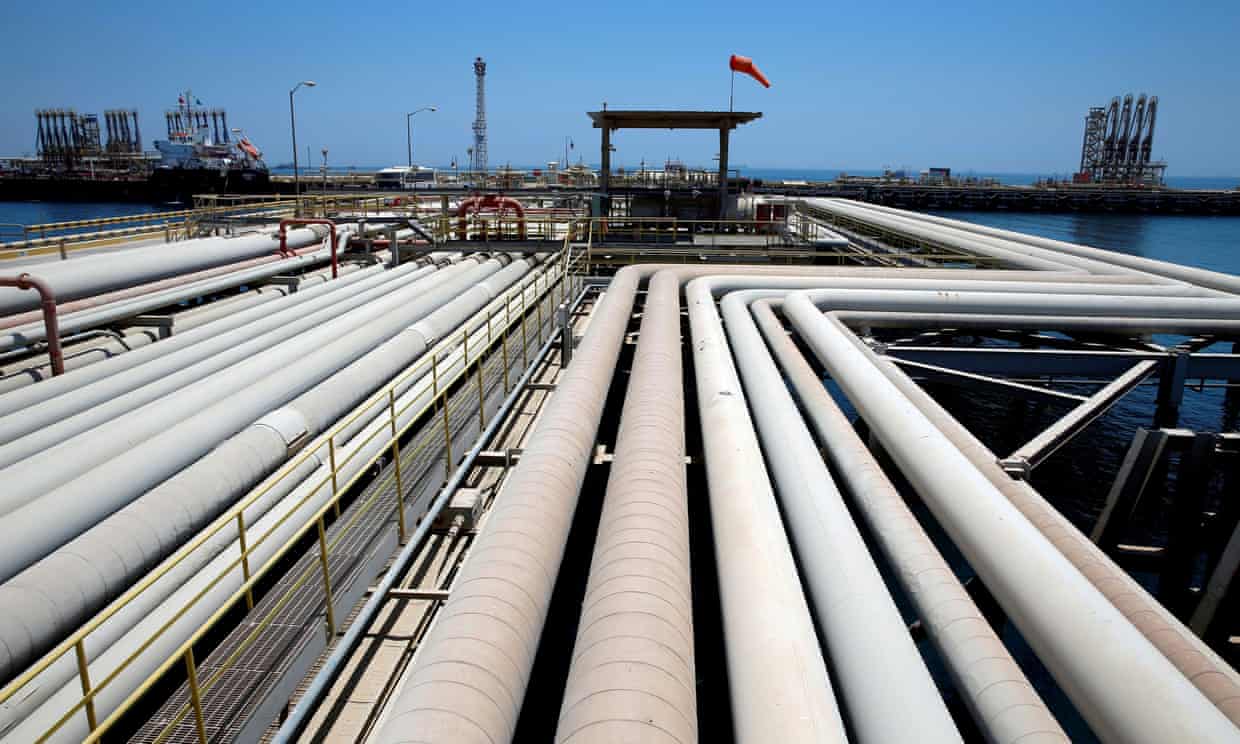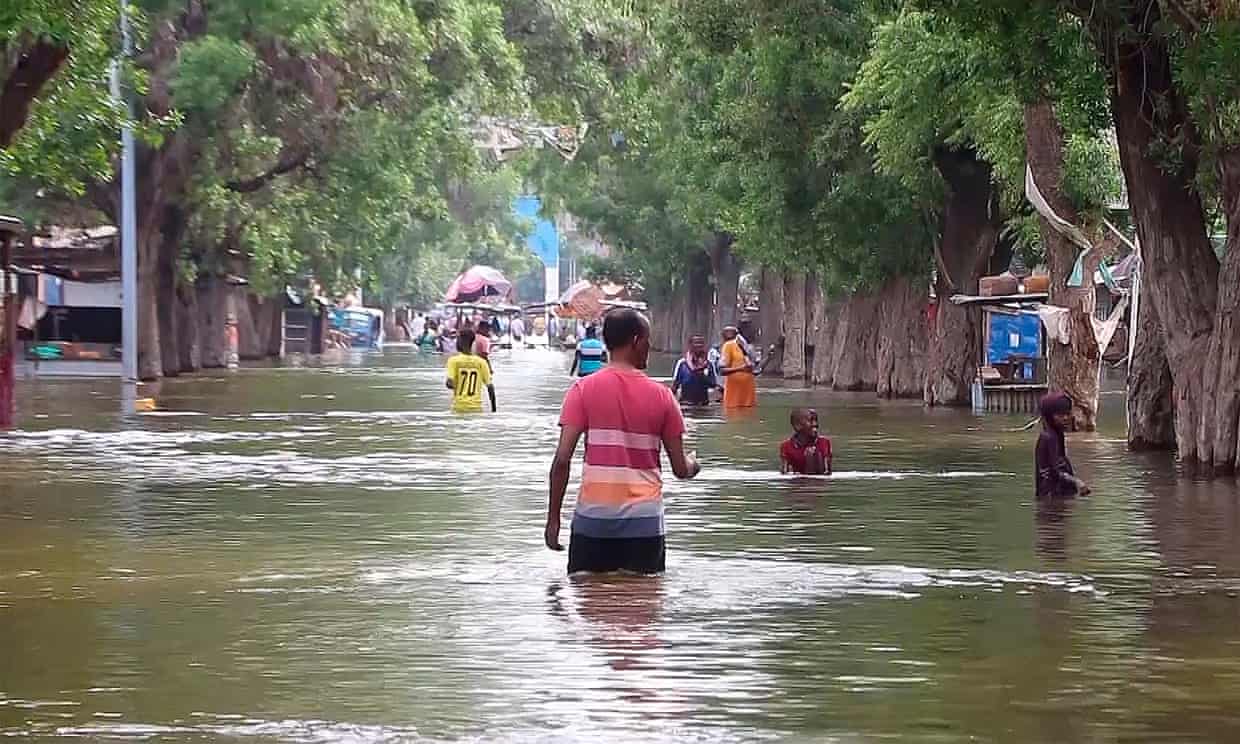

Your weekly guide to Sustainable Investment
TBLI Events
TBLI Circle - Spotlight interview

Join TBLI's Member Spotlight livestream events, held every Wednesday at 15:00 CET in the TBLI Circle, to share your thoughts and be interviewed virtually.
This initiative helps us understand our audience's needs while recognising our members' important work towards a greater purpose, as well as allow members of the TBLI Circle community get to know each other.
Sign up for the TBLI Circle & attend for free
Looking for access to impact investors for fundraising?
TBLI's Capital Connect service might be just what you are looking for.
Through our Capital Connect service, TBLI researches potential investors and make introductions to the most appropriate investors using our CRM system with curated selections and introductions. Capital Connect offers a direct way to tap into TBLI’s 25-year-old network of impact investors and reach your ideal potential investors through our matchmaking algorithm.
More info
Join TBLI Circle - Community for likeminded individuals
Do you have an article you'd like us to share in the TBLI Weekly? Make a suggestion here
FuturePlus wins TBLI Better World Prize

Harnessing the power of data-driven insights, FuturePlus, a Sustainability Group company, empowers companies to enhance their ESG performance, and has been named the winner of the TBLI Better World Prize.
The TBLI Better World prize is a people’s choice award with the goal to award the most innovative and comprehensive ESG & Impact measuring system.
About FuturePlus
Powered by data and guided by human expertise, FuturePlus is a sustainability management and reporting platform that empowers companies, investors, and asset managers of all sizes to understand, measure, evidence, improve, and report on their sustainability impact and goals.
FuturePlus adopts a future-focused view of what makes a sustainable business, assessing sustainability across five key themes: Climate, Environment, Social, Economic, and Diversity and Inclusion. They measure current impact and what companies and investors want to achieve in the future, and help them get there.
Joining FuturePlus in the top three were Elevate, an LRQA Company, who secured second place, and As You Sow, who took third place.
To learn more about the winners, as well as the other participants, please visit our event and ESG measurement research page.
Thank you all for supporting the TBLI Better World Prize. We remain committed to fostering ESG and impact measurement practices and will continue to develop initiatives that recognize and empower organizations making a positive impact on our world.
Revealed: Saudi Arabia’s grand plan to ‘hook’ poor countries on oil

By: Damian Carrington - The Guardian
Climate scientists say fossil fuel use needs to fall rapidly – but oil-rich kingdom is working to drive up demand
Saudi Arabia is driving a huge global investment plan to create demand for its oil and gas in developing countries, an undercover investigation has revealed. Critics said the plan was designed to get countries “hooked on its harmful products”.
Little was known about the oil demand sustainability programme (ODSP) but the investigation obtained detailed information on plans to drive up the use of fossil fuel-powered cars, buses and planes in Africa and elsewhere, as rich countries increasingly switch to clean energy.
The ODSP plans to accelerate the development of supersonic air travel, which it notes uses three times more jet fuel than conventional planes, and partner with a carmaker to mass produce a cheap combustion engine vehicle. Further plans promote power ships, which use polluting heavy fuel oil or gas to provide electricity to coastal communities.
The ODSP is overseen by Saudi Arabia’s de facto ruler, the crown prince Mohammed bin Salman, and involves its biggest organisations, such as the $700bn Public Investment Fund, the world’s largest oil company, Aramco, the petrochemicals firm Sabic, and the government’s most important ministries.
In publicly available information, the programme is largely presented as “removing barriers” to energy and transport in poorer countries and “increasing sustainability”, for example by providing gas cooking stoves to replace wood burning.
However, all the planned projects revealed in the investigation by the Centre for Climate Reporting and Channel 4 News involve increasing the use of oil and gas. An official said this was “one of the main objectives”.
The head of the World Bank said recently that rich countries and companies needed to help developing countries leapfrog over the fossil-fuelled economic growth of the past and roll out renewable energy. If they did not, Ajay Banga said, there was no hope of ending carbon emissions by 2050, as the world’s scientists had repeatedly made clear was necessary to avoid climate catastrophe.
Saudi Arabia has said it is committed to the Paris agreement’s climate goals to restrict global heating to well below 2C while aiming for a 1.5C rise at most. To achieve this, fossil fuel emission must fall rapidly and most oil and gas reserves must be kept in the ground, meaning climate policies, such as support for electric cars, pose a significant threat to the oil-rich state’s revenues.
A significant issue at the UN’s Cop28 climate summit, which will begin on Thursday, is whether countries can deliver a pledge to phase down – or phase out – fossil fuels. This year the climate crisis has smashed temperature records and supercharged extreme weather has taken lives and livelihoods around the world.
Mohamed Adow, the director of the thinktank Power Shift Africa, said: “The Saudi government is like a drug dealer trying to get Africa hooked on its harmful product.
“The rest of the world is weaning itself off dirty and polluting fossil fuels and Saudi Arabia is getting desperate for more customers and is turning its sights on Africa. It’s repulsive.
“Africa cannot catch up with the rest of the world by trudging along in the footsteps of the polluting nations. It would mean we miss out on the benefits of modern energy solutions that Africa can take advantage of due to its massive renewable energy potential. We have the latecomer advantage, which means we can leapfrog to a genuine energy transition.”
António Guterres, the UN secretary general, said in 2021: “We need to see adequate international support so African and other developing countries’ economies can leapfrog polluting development and transition to a clean, sustainable energy pathway.”
The Saudi Arabian ministry of energy did not respond to a request for comment.
Read full article
Weather tracker: Ethiopia hit by severe drought amid east Africa floods

More than 50 people dead in Tigray and Amhara regions while UN warns of ‘crisis-level hunger or worse’ in Somalia
The regions of Tigray and Amhara in northern Ethiopia have continued to experience severe drought conditions with more than 50 people dead, as well as 4,000 cattle.
While northern Ethiopia suffers from droughts, the southern and eastern parts of the country, along with Kenya and Somalia, have been hit by flooding. Somalia suffered the worst of the flooding, with 50 people reported dead. According to the Somali disaster management agency almost 700,000 people have been forced to leave their homes.
Across east Africa a total of 130 people have died because of the flooding. The town of Beledweyne in Somalia was badly affected as the Shabelle River burst its banks, destroying many homes. According to Save the Children, an estimated 250,000 people (about 90% of Beledweyne’s population) were forced out of their homes. The flooding is expected to continue to affect east Africa with the UN warning that 4.3 million people (a quarter of Somalia’s population) are at risk of “crisis-level hunger or worse”.
Turkey is dealing with the aftermath of a severe storm and flooding that affected the country on 18 and 19 November. The storm was responsible for the sinking of the Turkish-flagged cargo ship Kafkametler, which sank off the Black Sea coast. The ship struck a breakwater outside the harbour near the town of Ereğli, leaving 11 crew members missing. The ship had already sustained damage in October after it struck a mine off the coast of Romania. The search and rescue operation was delayed for several hours due to the severe weather, but the body of the ship’s cook was found after conditions eased. Another ship, registered in Cameroon, broke in two due to the storm after all its crew had been safely evacuated.
Rescue and relief efforts continue across multiple provinces, with large-scale damage reported to people’s homes and infrastructure, including roofs blown off, fallen trees and flooding. In response to the situation, schools were temporarily suspended across four provinces. At least nine people have died in three provinces, with at least 50 people injured.
Source
Portugal just ran on 100 percent renewables for 6 days in a row

For nearly a week, the country of 10 million met customer needs with wind, hydro and solar — a test run for operating the grid without fossil fuels.
This story was originally published by Canary Media.
One recent autumn afternoon, I watched the Atlantic gusts collide with the cliffs that rise above Nazaré, Portugal. Rain pelted down, and the world-renowned swells rose into walls of water that even the most death-defying surfers reach only via Jet Ski. For me, this looked like a rained-out, late-season beach getaway, but for the sliver of Iberia that is Portugal, it looked like a bright future. That weekend, the nation of 10 million ran on nothing but wind, solar and hydropower.
As it turned out, those rainy, blustery days were just a warmup. Portugal produced more than enough renewable power to serve all its customers for six straight days, from October 31 to November 6.
“The gas plants were there, waiting to dispatch energy, should it be needed. It was not, because the wind was blowing; it was raining a lot,” said Hugo Costa, who oversees Portugal for EDP Renewables, the renewables arm of the state utility, which was privatized in 2012. “And we were producing with a positive impact to the consumers because the prices have dropped dramatically, almost to zero.”
To hit Paris Agreement climate goals by 2050, nations need to run their grids without carbon emissions not just for three or six days, but year-round. A handful of countries already do this, thanks to generous endowments of hydropower, largely developed well before the climate crisis drove investment decisions for power plants. Others score highly on carbon-free power thanks to big fleets of nuclear plants.
Portugal falls into a different, more relatable bucket: It started its decarbonization journey with some legacy hydropower, but no nuclear capacity nor plans to build any. That meant it had to figure out how to cut fossil fuel use by maximizing new renewables.
How did Portugal make this happen? It committed to building renewables early and often, pledging a 2050 deadline for net-zero carbon emissions in 2016, several years before the European Union as a whole found the conviction to take that step. Portugal’s last coal plants shut down in 2022, leaving (imported) fossil gas as the backstop for on-demand power.
“The key conclusion, in my opinion, is that it shows that the Portuguese grid is prepared for very high shares of renewable electricity and for its expected variation: We were able to manage both the sharp increase of hydro and wind production, and also the return to a lower share of renewables, when natural-gas power plants were requested again to supply some of the country’s demand,” said Miguel Prado, who covers Portugal’s energy sector for Expresso newspaper.
Read full article
As Global Climate Impacts Escalate, Study Forecasts Prolonged High UK Food Prices

The cost of food in the UK has seen a significant surge since the start of 2022, with an average British household shelling out an extra £605 for their groceries, all thanks to the combined effects of climate change and soaring energy and fertilizer prices, as revealed by a recent in-depth analysis.
According to data unveiled this morning by the Energy and Climate Intelligence Unit (ECIU), a prominent think tank, the nation's food bill has been inflated by a staggering £17 billion due to the interplay of climate change and escalating energy and fertilizer costs since late 2021.
This comprehensive study, conducted by a team of dedicated researchers from the esteemed universities of Bournemouth, Exeter, and Sheffield, delves into the multifaceted factors driving the relentless food inflation experienced over the past few years.
It's crucial to grasp that climate impacts, ranging from tempestuous storms and parching droughts affecting UK potato and vegetable yields to blistering heatwaves sweeping across the Mediterranean, India, and South America, have substantially driven food prices. They account for nearly a third of the recent inflation observed in food costs.
The meticulous analysis calculates that since the dawn of 2022, an eye-popping £361 surge in food prices can be directly attributed to the far-reaching impacts of climate change. Furthermore, an additional £244 hike stems from elevated oil and gas expenses rippling the entire food supply chain.
This data underscores that we should anticipate food prices maintaining their upward trajectory in the foreseeable future, even if energy costs begin to ease. "In 2022, energy costs dominated the headlines, and these fed through to a high headline rate of inflation for food," said Professor Wyn Morgan, one of the report authors. "And yet, as energy costs have fallen back, climate change has emerged as a bigger driver of inflation for food over the last two years.
"Given we expect climate impacts to get worse, it is likely that climate change will continue to fuel a cost of living crisis for the foreseeable future. With an El Niño event now confirmed, 2024 may have even worse in store for hard-pressed shoppers.
COP26 President and Conservative MP Alok Sharma said the research highlighted the importance of the UK showing leadership in the global fight to arrest climate change.
"The negative impacts of a changing world climate are here and now and are putting real upward pressure on the cost of living," he said. "From staples like wheat and rice to fruits like bananas and oranges, our food supplies are global, and it is therefore imperative that the UK continues to show leadership in its efforts to tackle the climate crisis so that we bring other nations with us and help cut the risks to our food security."
The release of this analysis coincides with a dire warning from S&P Global Ratings, which predicts that the world's GDP could see an annual loss of up to 4.4 percent by 2050 if global warming is not kept "well below 2C" and if climate resilience efforts are not urgently strengthened.
Read full article
How AI could power the climate breakthrough the world needs

Tomato growers in central India have been increasingly worried about the volatility that extreme weather events have brought to the region. For much of the area, the last decade has been punctuated by severe droughts that led to significant crop loss, impacting the livelihoods of local farmers.
On the other side of the world, Silicon Valley startup ClimateAi is developing an artificial intelligence platform to evaluate how vulnerable crops are to warming temperatures over the next two decades. The tool uses data on the climate, water and soil of a particular location to measure how viable the landscape will be for growing in the coming years.
Maharashtra, India, was one of its first case studies in 2021. Farmers could go into the ClimateAi app and input what seed they were growing and where they wanted to plant it.
With that data, ClimateAi ran simulations and found that extreme heat and drought would lead to an approximately 30% decrease in tomato output in the region over the next two decades. It warned growers that they should change their strategy.
The results proved pivotal — tomato producers adjusted their business plans by switching to more climate-resilient seed varieties and shifting the times they plant tomato seeds. Finding new growing locations usually takes a while for farmers affected by climate change, but "now it can happen in a matter of minutes, and it also saves them a lot of cost," according to Himanshu Gupta, who grew up in India and is a co-founder of ClimateAi.
"The way we think about AI is it's a time and effectiveness multiplier to the solutions for climate change," Gupta told CNN.
Better assessing future risks for farming is just one of the ways artificial intelligence technologies are being used to address the climate crisis.
AI first crashed into the public consciousness this year thanks to popular, consumer-facing AI tools like ChatGPT, and experts say the technology is set to revolutionize countless industries. But climate researchers have for years been thinking about how AI — computer programs that can rapidly analyze enormous amounts of data and complete complex tasks in ways similar to how a human might — could help them better understand and address the changing climate.
Now, experts say AI is poised to accelerate everything from reducing pollution to improving weather models.
"Efficiencies is one thing that AI is very good at, optimizing decisions, optimizing resources," said Fengqi You, chair professor at Cornell University's engineering school. "It's a system that has very strong predictive capabilities that could be tremendously helpful in many domains, ranging from (understanding) small-scale molecules … to broader climate systems to help us fight climate change."
With the breakneck pace at which the planet has been warming, accelerating the speed at which the world deploys and implements solutions is crucial. But for all of AI's promise, the infrastructure that supports the technology — data centers filled with rows of powerful, energy-sucking computers — could itself be a strain on the environment. Experts say software engineers must work closely with climate scientists to find a balance.
Read full article